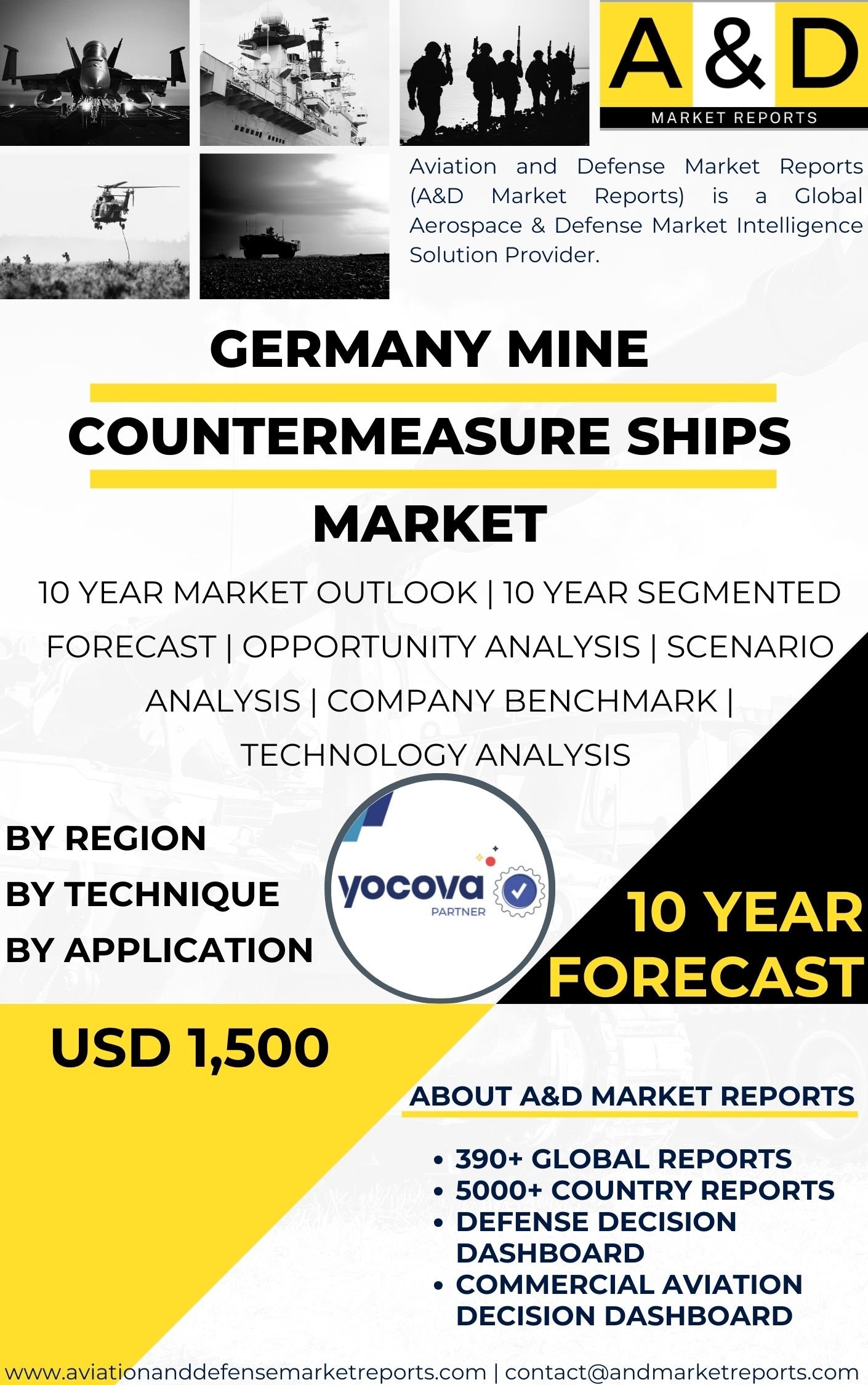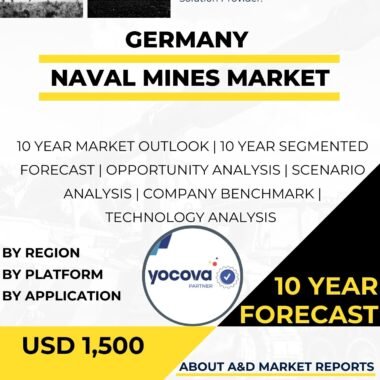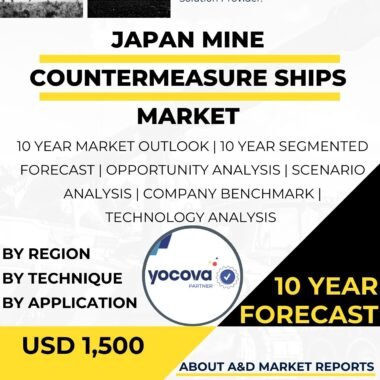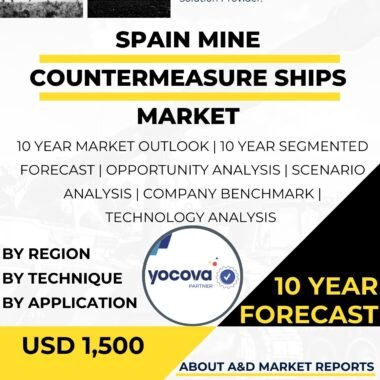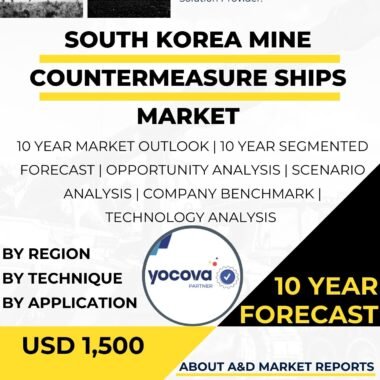Description
Germany mine countermeasure ships market has been a significant and evolving segment within the country’s naval and maritime defense industry. Mine countermeasure ships (MCMs) play a critical role in protecting naval forces and ensuring safe passage for commercial shipping in coastal waters and critical sea lanes. These specialized vessels are equipped with advanced sensors, mine-hunting systems, and remotely operated vehicles (ROVs) to detect, neutralize, and clear naval mines and underwater explosive devices.
The Germany mine countermeasure ships market has witnessed continuous development and modernization efforts to address the evolving threat of naval mines and maintain the country’s maritime security. With extensive coastlines along the North Sea and Baltic Sea, as well as significant maritime trade, Germany recognizes the importance of having a capable fleet of MCMs to safeguard its territorial waters, protect critical infrastructure, and support international naval operations.
The demand for advanced mine countermeasure capabilities is driven by the ever-present threat of naval mines, which pose significant risks to maritime operations, commercial shipping, and naval assets. Mines can be deployed by hostile forces, state or non-state actors, or can be remnants of previous conflicts, making them a persistent hazard in littoral and open waters. Therefore, the need for modern, capable MCM vessels is essential to maintain maritime security and enable free and safe navigation.
The Germany mine countermeasure ships market has been influenced by technological advancements in mine-hunting and mine-neutralization technologies. Over the years, there have been significant developments in sonar systems, unmanned underwater vehicles (UUVs), ROVs, and remotely operated mine disposal systems. These advanced technologies enable MCM vessels to detect and neutralize mines efficiently while keeping personnel out of harm’s way during mine-clearance operations.
Moreover, the Germany mine countermeasure ships market is also driven by international commitments and cooperation. As a member of NATO and the European Union, Germany participates in multinational naval operations and contributes to mine countermeasure efforts in various regions around the world. This international collaboration fosters the sharing of best practices, joint exercises, and the development of interoperable mine countermeasure capabilities among allied nations.
In recent years, there has been a trend toward modular and multi-role MCM vessels, capable of conducting a range of maritime security tasks beyond mine countermeasures. These vessels often feature a flexible mission bay that can be reconfigured to accommodate different payloads, such as special operations equipment, humanitarian aid, or unmanned systems. The adaptability of these vessels enhances their versatility and cost-effectiveness, allowing for a more comprehensive approach to maritime security challenges.
The export potential of German mine countermeasure ships is another important aspect of the market. Germany’s reputation for producing high-quality naval vessels and its strong shipbuilding industry make it an attractive supplier for other countries seeking modern MCM capabilities. However, export decisions are subject to international regulations and political considerations, especially when it comes to sensitive military technologies.
Challenges faced by the Germany mine countermeasure ships market include budget constraints and the need to balance investments in naval capabilities with other defense priorities. Naval procurement can be costly, and decision-makers must carefully prioritize investments to meet the various defense requirements while maintaining a balanced and capable fleet of MCM vessels.
Furthermore, the Germany mine countermeasure ships market must address evolving mine threats, including new types of mines, improvised explosive devices (IEDs), and cyber-enabled mines. As adversaries continue to adapt and innovate their mine warfare tactics, MCM vessels must stay ahead of these emerging threats and continuously upgrade their sensor systems, mine-hunting technologies, and countermeasure capabilities.
In conclusion, the Germany mine countermeasure ships market is a significant and dynamic segment within the country’s naval and maritime defense industry. Advanced mine countermeasure capabilities are essential for protecting naval assets, ensuring safe maritime trade, and supporting international naval operations. The market is driven by the continuous threat of naval mines, technological advancements in mine countermeasure technologies, international commitments, and the need for versatile and multi-role MCM vessels. As Germany continues to invest in developing and modernizing its mine countermeasure fleet, the market is expected to play an increasingly pivotal role in maintaining the country’s maritime security and contributing to international mine countermeasure efforts.
